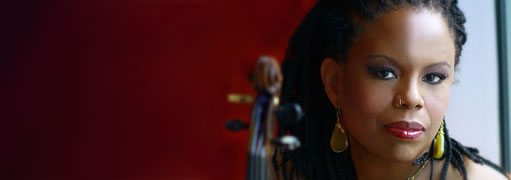Jazzed: Regina Carter’s Reverse Thread
Regina Carter’s Reverse Thread


Genius violinist Regina Carter takes the stage at the 2012 New Mexico Jazz Festival.
Rahav Segev
Latest Article|September 3, 2020|Free
::Making Grown Men Cry Since 1992


Genius violinist Regina Carter takes the stage at the 2012 New Mexico Jazz Festival.
Rahav Segev